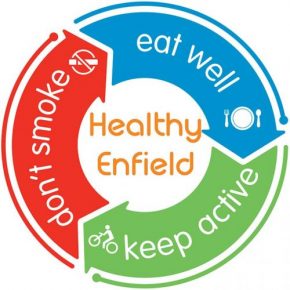Physical activity is good for you no matter how much or little you do. Adults should aim to be active every day and complete 150 minutes of moderate intensity activity a week or 75 minutes of vigorous intensity activity a week.
Activity and mental health
Getting activity can reduce anxiety and stress, combat low mood and increase self-esteem - it is a natural food booster. Low-impact activities like yoga, Tai-Chi and Pilates can relieve stress, depression and anxiety. They also help with balance and core strength and suit any age or ability.
Activity to try
- Walking - one of the simplest and cheapest ways to incorporate exercise into your everyday routine
- Gardening - a few hours of solid gardening (digging, planting, mowing and weeding) is a great form of exercise
- Dancing - dancing is a great way to get the physical activity your body needs and to socialise
- Swimming - there are public swimming pools in Enfield and swimming can be one of the most enjoyable ways to get more active
- Cycling - cycling is a great way to travel to work, school or socially. Cycling can also be a fun activity to do with family and friends.
Physical activity for older adults
Adults aged 65 and over should aim to be physically active every day, even if it's just light activity. This can include getting up to make a cup of tea, moving around your home, walking at a slow pace, cleaning and making the bed. Older adults should also aim to reduce time spent sitting or lying down and break up long periods of not moving with some activity
Physical activity in pregnancy
The more active and fit you are during pregnancy, the easier it will be for you to adapt to your changing shape and weight gain. It will also help you to cope with labour. As a general rule, you should be able to hold a conversation as you exercise when pregnant. If you become breathless as you talk, then you're probably exercising too strenuously. Talk to your GP or midwife for more information on exercise in pregnancy.
Fitness for wheelchair users
Using a wheelchair can make it more difficult to do cardiovascular physical activity that raises your heart rate. Manoeuvring or pushing a wheelchair can also put particular pressure on certain muscles in the upper body, making strains or other injuries more likely. Muscle-strengthening exercises can help you manage your wheelchair in daily life and avoid these kinds of ailments. Parasport is an organisation dedicated to helping disabled people get involved in sports.
To find a local opportunity, visit Every Body Moves.
National resources
- NHS Get Active - includes ‘couch to 5k’, ‘active 10’, ‘this girl can’ and home workout videos
- Mind - activity and mental health resources
- Tommy’s - exercise and pregnancy
Local resources
- Enfield green spaces and parks
- Active Enfield - a range of fun and engaging sport, dance and health activities all year round for young people (ages 3 to 18), adults and over 50s
- Age UK Fit for Life - a range of exercise classes, activities and walks at a range of community venues across the borough
- Journeys and places - walking and cycling groups, cycling lessons and bike repair service
